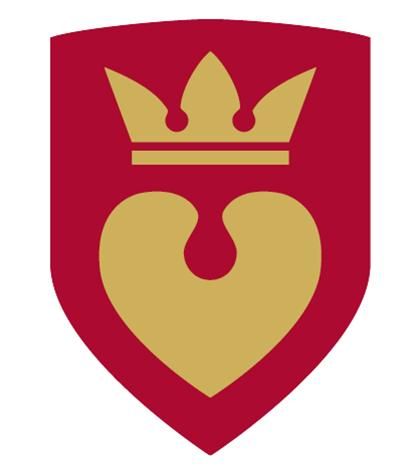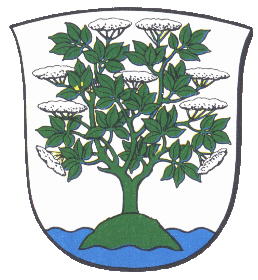Hillerød: Difference between revisions
Knorrepoes (talk | contribs) m (Text replacement - "Literature :" to "Literature:") |
Knorrepoes (talk | contribs) m (Text replacement - "{{dk}}↵↵'''" to "'''") |
||
| Line 1: | Line 1: | ||
'''HILLERØD''' | '''HILLERØD''' | ||
Revision as of 06:40, 1 July 2023
HILLERØD
Region : Hovedstaden
Amt (until 2007) : Frederiksborg
Additions : 1970 Alsønderup, Esbønderup-Nødebo (partly), Harløse, Nørre Herlev; 2007 Skævinge (1970 Skævinge-Gørløse, Lille Lyngby, Strø)
Origin/meaning
The arms were officially registered on January 8, 2007.
The heart represent that Hillerød is “the heart of northern Sealand” – geographically, traffically and maybe even commercially. The “heart” is also intended to represent a waterlily leaf to indicate Hillerøds location between Denmarks two major lakes “Arresø” and “Esrom Sø”.
The crown represent that Hillerød (formerly Frederiksborg) was a royal residence for several centuries from 1560 until the Frederiksborg castle burned out in 1859, and the royal household was moved to Copenhagen.
The colors, red and gold, are those of the Danish royal family who originate from the town of Oldenburg (in present day Germany).
Until 2007 the municipality used the arms below :
The arms were used since 1787 and registered in 1938.
The name is derived from Hylderødsholm, which may be translated as an elderberry on a small island. The arms are thus canting, but not correct as the name is actually derived from "the place where Hilde cleared the forest".
Contact and Support
Partners:
Your logo here ?
Contact us
© since 1995, Heraldry of the World, Ralf Hartemink 
Index of the site
Literature: Achen, 1982; Zeuthen, 2000











